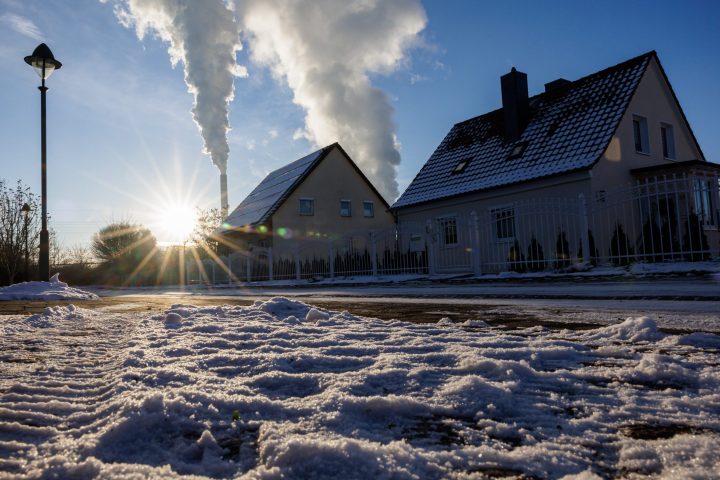
War in Ukraine disrupts Europe’s green energy plans for the moment
War in Ukraine disrupts Europe’s green energy plans for the moment

Europe has been a leader in shifting its economy towards more green energy with a goal of reducing its emissions by 55% by 2030. But, it’s in a tough spot.
Russia’s war in Ukraine has disrupted the supply of Russian natural gas, and so the continent has had to temporarily resort to something it was desperately trying to leave behind: Coal.
Demand for coal in Europe is up 6% this year, according to estimates from the International Energy Agency.
“What the Europeans are doing is scrambling to keep the lights on,” said David Victor, a professor of innovation and public policy at UC San Diego. The supply of Russian natural gas has been disrupted, and French nuclear power plants have had unexpected problems with corrosion, cutting the electricity supply even more. So, natural gas prices rose astronomically.
“And when the gas price has started going up, coal plants became more competitive.”
Germany also notably delayed the closure of coal plants that were supposed to shut down, keeping them online in reserve. The continent may need them into next winter. But, the pivot to coal will be a short detour.
“Coal has no future,” said Marie Tamba, a senior analyst at Rhodium Group.
Gernot Wagner, a climate economist at Columbia Business School, said the reliance on coal is better than doubling down even further on natural gas. Germany, for example, is building three new natural gas terminals.
“Well, they will stick around for quite a while, while the coal plants that happen to be running this winter are not,” he said.
This episode is accelerating Europe’s drive towards renewables. The E.U. has relaxed permitting requirements to speed up renewable projects, and Wagner said demand for renewable and energy saving appliances has skyrocketed.
There’s a lot happening in the world. Through it all, Marketplace is here for you.
You rely on Marketplace to break down the world’s events and tell you how it affects you in a fact-based, approachable way. We rely on your financial support to keep making that possible.
Your donation today powers the independent journalism that you rely on. For just $5/month, you can help sustain Marketplace so we can keep reporting on the things that matter to you.

















